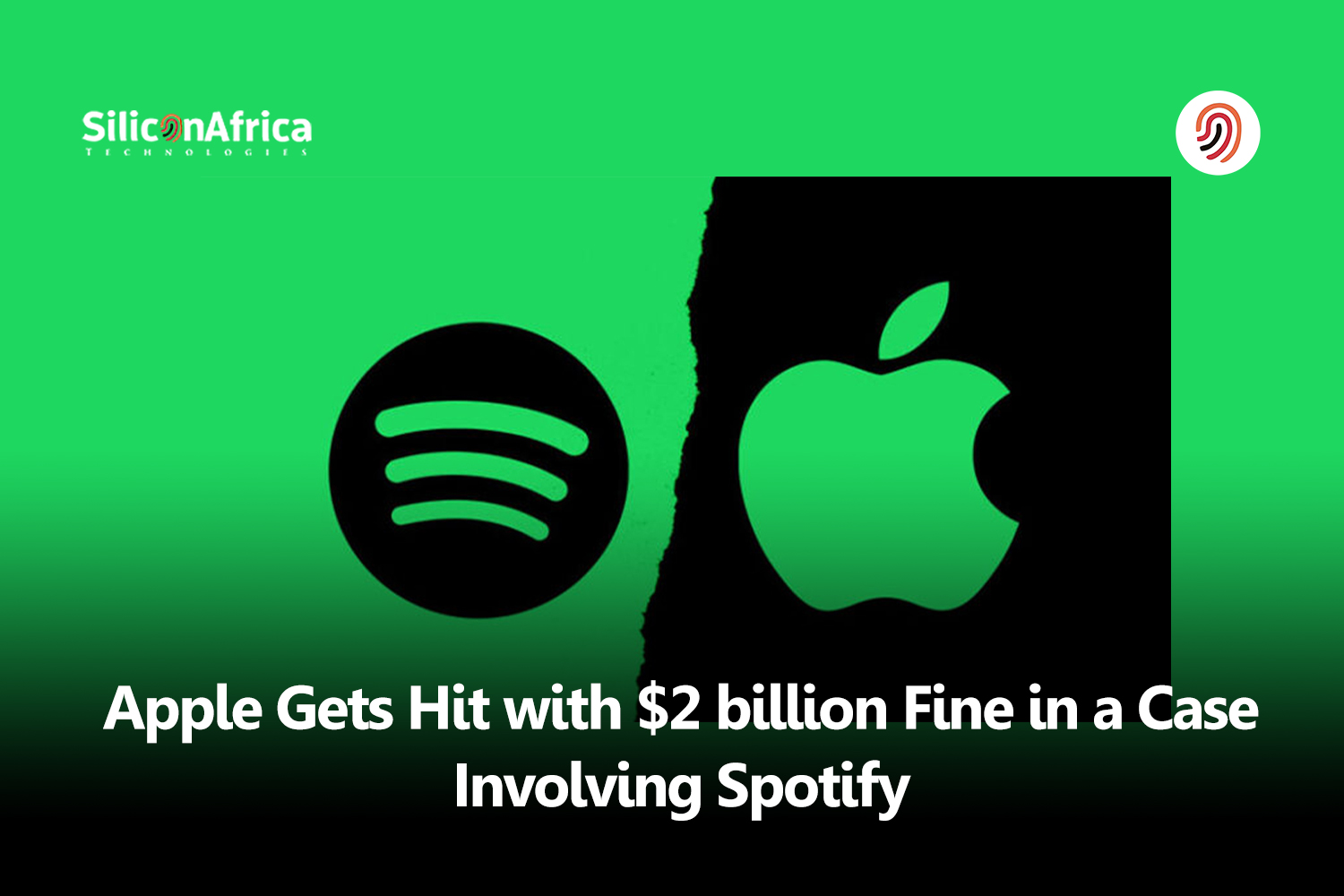Physical Address
60 Ekwema Cres, Layout 460281, Imo
Physical Address
60 Ekwema Cres, Layout 460281, Imo

In a landmark decision that could have far-reaching implications for the tech industry, the European Commission slapped a hefty €1.84 billion (approximately $2 billion) fine on Apple on March 4, 2024, for antitrust violations related to its handling of music streaming apps on the App Store.
This is the first-ever such penalty levied against the tech giant by the EU and comes after a complaint filed by Spotify in 2020 challenging Apple’s App Store policies.
The heart of the controversy lies in Apple’s App Store rules, which mandate that all apps distributed through the platform must use Apple’s in-app purchase system for digital goods and services.
This system, often referred to as the “Apple Tax,” requires developers to pay Apple a 30% commission on all transactions.
Spotify, along with other app developers, has long argued that this commission is excessive and stifles competition.
Additionally, Spotify contended that Apple’s restrictions on communication with users were unfair.
Specifically, Apple prevented Spotify from informing users about alternative subscription options outside the App Store, effectively hindering their ability to offer competitive pricing and promotions.
The EU Commission, after a two-year investigation, concluded that Apple’s practices stifled competition in the music streaming market and gave Apple Music an unfair advantage over its competitors.
The commission further stated that Apple’s restrictions on communication with users “impeded effective competition and innovation in the mobile music streaming app market.”The €1.84 billion fine consists of two parts – a basic penalty of €40 million and a much larger sum intended as a deterrent.
This hefty fine underscores the seriousness with which the EU views Apple’s actions and sets a strong precedent for future antitrust cases against tech giants.
Read More: Youtube and Spotify Deny Apple Vision Pro Access
Apple, in a statement, strongly contested the ruling, claiming that the commission “misunderstood” its business model and that the App Store “supports a vibrant app ecosystem that benefits developers and consumers alike.”
The company has announced its intention to appeal the decision, setting the stage for a potentially lengthy legal battle.
The ruling after the EU’s investigation has the potential to significantly impact the way Apple operates its App Store and could force the company to revise its policies regarding in-app purchases and communication with users.
Additionally, this decision could trigger similar investigations and legal actions against Apple in other jurisdictions, including the United States, where concerns about the company’s dominance in the app market are also growing.